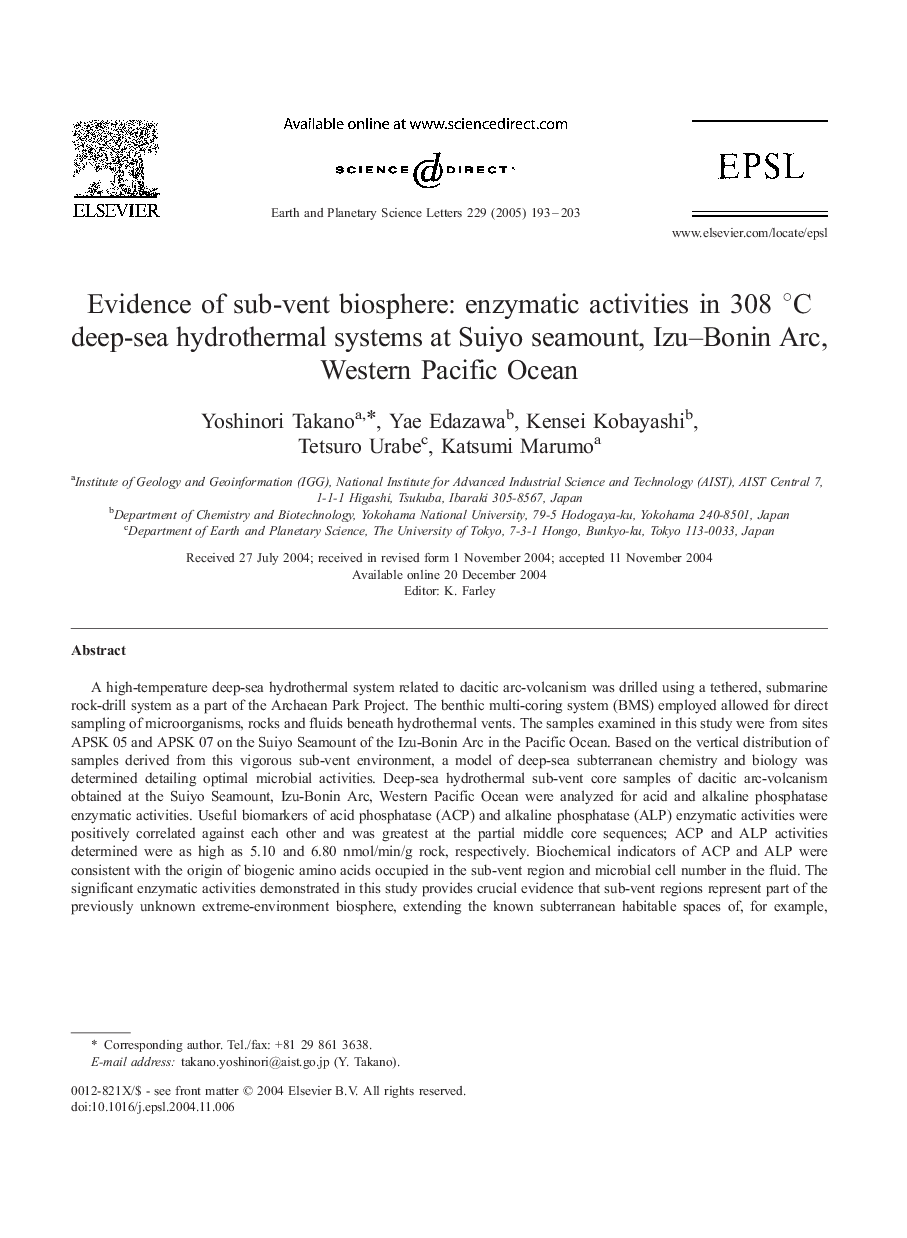| Article ID | Journal | Published Year | Pages | File Type |
|---|---|---|---|---|
| 9522435 | Earth and Planetary Science Letters | 2005 | 11 Pages |
Abstract
A high-temperature deep-sea hydrothermal system related to dacitic arc-volcanism was drilled using a tethered, submarine rock-drill system as a part of the Archaean Park Project. The benthic multi-coring system (BMS) employed allowed for direct sampling of microorganisms, rocks and fluids beneath hydrothermal vents. The samples examined in this study were from sites APSK 05 and APSK 07 on the Suiyo Seamount of the Izu-Bonin Arc in the Pacific Ocean. Based on the vertical distribution of samples derived from this vigorous sub-vent environment, a model of deep-sea subterranean chemistry and biology was determined detailing optimal microbial activities. Deep-sea hydrothermal sub-vent core samples of dacitic arc-volcanism obtained at the Suiyo Seamount, Izu-Bonin Arc, Western Pacific Ocean were analyzed for acid and alkaline phosphatase enzymatic activities. Useful biomarkers of acid phosphatase (ACP) and alkaline phosphatase (ALP) enzymatic activities were positively correlated against each other and was greatest at the partial middle core sequences; ACP and ALP activities determined were as high as 5.10 and 6.80 nmol/min/g rock, respectively. Biochemical indicators of ACP and ALP were consistent with the origin of biogenic amino acids occupied in the sub-vent region and microbial cell number in the fluid. The significant enzymatic activities demonstrated in this study provides crucial evidence that sub-vent regions represent part of the previously unknown extreme-environment biosphere, extending the known subterranean habitable spaces of, for example, extremophilic microbes. This boring trial was first example of discharging high temperature hydrothermal activities at the frontal arc volcanoes.
Keywords
Related Topics
Physical Sciences and Engineering
Earth and Planetary Sciences
Earth and Planetary Sciences (General)
Authors
Yoshinori Takano, Yae Edazawa, Kensei Kobayashi, Tetsuro Urabe, Katsumi Marumo,
